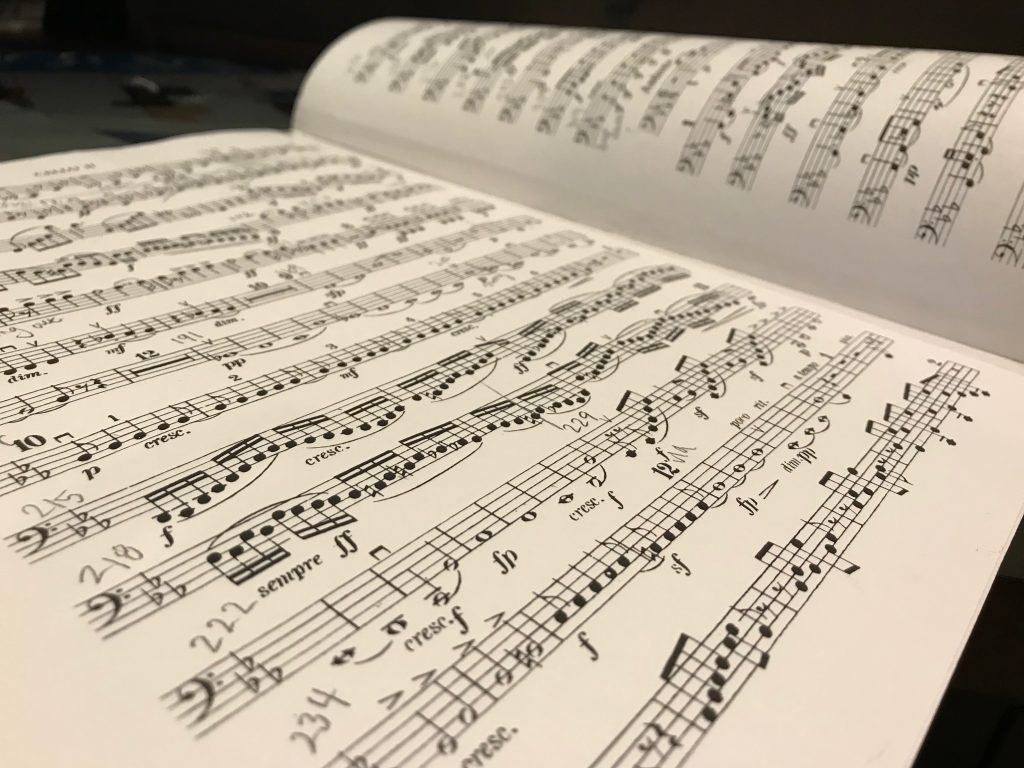In today’s culture, which revolves around the latest technology and social media trends, pop, rap, and rock music have usurped the more antique genre: classical. The instant gratification provided by modern music- simple, melodic, and only around three minutes in length- has made it the clear favorite of younger generations. First popularized from 1750 to 1820, classical music has since come to be seen as elitist, targeted at intellectuals, the elderly, and those who wish to appear sophisticated. In reality however, classical music is a precious art form that has the potential to enrich the lives of those who listen to and appreciate it.
Rather than the immediate understanding and enjoyment which comes from an easy-to-follow piece of pop music, classical music requires more patience from the listener. Listening to a classical work is like reading a classic novel: it may be long and sometimes the wording is difficult to decipher but an important narrative is held in the pages. A story is clearly present in all good pieces of classical music. There are intricate layers of melody and harmony, themes which are repeated often with a surprising transformation or subtle change, modulations, codas, cadenzas, and even vocalists. Classical music invites listeners to focus, to take in these nuances, and to follow the narrative. It is a common misconception that classical music is boring when in reality it possesses a communicative power, invoking in the audience the passion which Bach, Mozart, Beethoven and others had for their craft.
In addition to listening for pleasure, classical music has other benefits. New studies have linked classical music with improved health and higher performance in school. Primarily, classical music works as a relaxant, decreasing stress by lowering cortisol levels in the body. In fact, many people with anxiety disorders have been known to use classical music as a way of preventing panic attacks and dispelling fears. According to a study published in the Journal of Health Psychology, “…participants who listened to classical music had significantly lower blood pressure levels than participants who did not hear any music. Subjects exposed to classical music also experienced a reduction in brain activity and decreased heart rate, which lead them to feel more relaxed.” Over an extended period of time, having low blood pressure will result in a healthier heart and a prolonged life-span. Additionally, a follow up study linked classical music to improved sleep quality and a sharper memory, resulting in higher test scores.
While the rise of technology in music may appear to put the classical genre at a disadvantage, according to George Trudeau, Director of the Center for the Performing Arts at Penn State, there are some benefits. He states, “Classical music is alive and well… there are more avenues than ever before for classical performance and public education, including public radio, the Internet, and other digital technologies.” Fans of classical music will be encouraged to know that the genre still has a large following. In fact, the National Endowment for the Arts reported that the total number of people annually attending classical music performances dropped only 2.8 percent from 1982 to 2012. However, the fate of the genre depends on the interest of young people. If you don’t like or have never listened to classical music, give it a try! You may find more than you were expecting.
Some classical music recommendations for those interested:
- Antonio Vivaldi – The Four Seasons
- Ludwig van Beethoven – Symphony No. 9 In D Minor
- Pyotr Ilyich Tchaikovsky – Swan Lake
- George Frideric Handel – The Messiah
- Wolfgang Amadeus Mozart – Serenade No. 13
Elizabeth Gaillard
staff writer
Graphic: Anika Tsapatsaris

